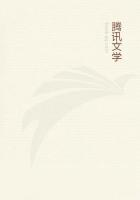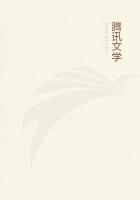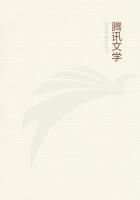Another very common mistake is to speak of "property" as if it were an institution having a fixed form, constantly remainingthe same; whereas in reality it has assumed the most diverse forms, and is still susceptible of great and unforeseenmodifications.
We will examine the different systems which have been put forward in explanation of the origin and justice of property.
There are six principal ones. The Roman law gives this definition of property: Dominium est jus utendi et abutendi re suâ,quatenus juris ratio patitur . The definition of the Code civil français is fundamentally the same: "Property is the right ofdisposing of and of enjoying things in the most absolute manner, provided that no use is made of them prohibited by lawsand regulations."
1. Roman jurists and most modern ones have considered occupancy of things without an owner as the principal titleconferring property. Quod enim nullius est id, ratione naturali, occupanti conceditur , says the Digest. This theory can beeasily maintained, so long as it only has to do with moveables which can be actually seized and detained, like game taken inthe chase, or goods found; but it encounters insurmountable difficulties directly we attempt to apply it to the soil. In the firstplace, history shews that the earth is never regarded by men as res nullius . The hunting ground of hunting tribes, or thepastures of pastoral nations, are always recognised as the collective domain of the tribe; and this collective possessioncontinues, even after agriculture has begun to fertilize the soil. Unoccupied land has therefore never been regarded aswithout an owner. Everywhere, in former times as in our own, it was considered as belonging to the commune or the State,so that there was no room, in former times any more than in our own, for acquisition by occupancy.
Most of the partisans of this theory do allow a sort of primitive community, communio bonorum primaeva . But they add,that in order to obtain individual ownership of things which they took possession of, all men tacitly agreed to renounce, eachfor himself; this undivided right over the common domain. If it is the historic origin of property, that they seek to explain inthis way, history knows of no such agreement. If it is meant as a theoretical and logical origin, in this case they lapse into thetheory of contract, which we shall examine further on.
M. Thiers, in his work De la Propriété borrows the idea of Cicero, who, comparing the world to a theatre, asserts that everyone makes the place he occupies his own: Theatrum cum commune sit, recte tamen dici potest ejus eum tocum quemquisque occupavit . The example goes against the theory which he is endeavouring to establish: for, in the first place, thespectator is only in possession of his place, and his possession merely gives him a temporary right and not the perpetualownership; and, secondly, he occupies hut one place. Hence no one could at best make his own more than the portion of thesoil which he actually retains and can cultivate. M. Renouard, in his excellent work, Du Droit industriel , recognises this: "Ofstrict natural right, the occupation of land presents serious difficulty in execution. It only gives a right over the soil actuallyheld in possession." Without this limit, in fact, a single man might, by some manifest sign of his intention, occupy a wholeprovince.
Occupation is a fact resulting from chance or force. There are three of us on an island large enough to support us all, if wehave each an equal part: if, by superior activity, I occupy two-thirds of it, is one of the others to die of hunger, or elsebecome my slave? In this case the instinct of justice has always commanded an equal partition. Hence we do conceive of aright of acquisition, anterior and superior to the ****** fact of apprehension, which it is called upon to limit and regulate.
Most jurists should answer the question, whether the soil can be the subject of exclusive and perpetual ownership, in thenegative. "For the sovereign harmony," says M. Renouard, "has exempted from the grasp of private ownership the chief ofthose things without the enjoyment of which life would become impossible to those who should be excluded in case of theirappropriation." The soil is obviously among the number of such things, as also is the air and water. For man cannot live onsunlight and dew, and the possession of some portion of productive capital is necessary for him to obtain his means ofsupport. The general principles of jurists, accordingly, commend the universal custom of primitive nations, which reserved tothe tribe the collective ownership of the soil.
According to Cousin, property is the necessary consequence and condition of liberty. Liberty is sacred; property should beno less so. But liberty is only respected when conformable to the law; so property can only be respected when determined byjustice. "Liberty and property demand and support each other," says M. Renonard. Undoubtedly; but as all should be free, soshould all be proprietors. "Property," says this eloquent jurist, "is the condition of personal dignity." In that case it is notallowable to make a privilege of it, unless we wish to see the mass of mankind degraded and enslaved.
2. The second theory of property would make labour its basis. This is the one adopted by economists, because, since AdamSmith, they have attributed to labour the production of wealth. Locke was the first to expound this system clearly, in histreatise on Civil Government , c. IV. Briefly, this is a summary of what he says on the subject God gave the soil to mankind at larger but as no one enjoys either the soil or that which it produces unless he be owner,individuals must be allowed the use, to the exclusion of all others.














